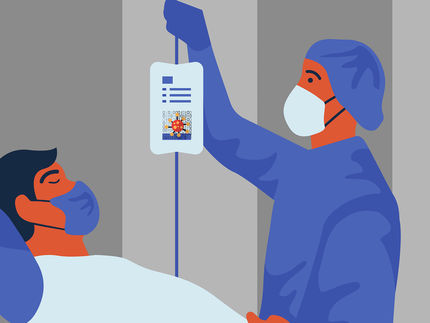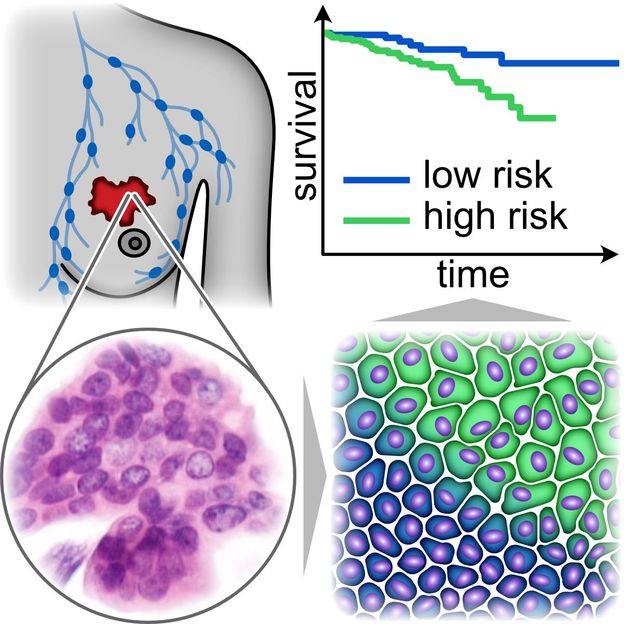Atriva announces closing of € 8.6 million oversubscribed convertible loan
Proceeds to be used to start Phase II study with ATR-002 in moderate to severe COVID-19 and clinical development in influenza and other respiratory viral infections
Atriva Therapeutics GmbH, a biopharmaceutical company pioneering the development of host-targeting antiviral therapies, announced the closing of a € 8.6 million ($ 10.2 million) convertible loan led by Meneldor B.V. and High-Tech Gründerfonds (HTGF), and joined by existing shareholders and new German and international investors.

Symbolic image
pixabay.com
The proceeds of the transaction will enable Atriva to start a multinational, double-blind, randomized clinical Phase II study in patients with moderate to severe COVID-19 infections, once authorization is granted by the German Federal Institute for Drugs and Medical Devices (Bundesinstitut für Arzneimittel und Medizinprodukte, BfArM). It will further be used to prepare a Phase II trial in influenza and to continue building a therapy platform to treat respiratory diseases induced by RNA viruses, such as Hantavirus. ATR-002 has been developed specifically to treat respiratory viral infections by inhibiting MEK, a host cell factor required for the replication of various RNA viruses, including influenza virus and SARS-CoV-2.
Preclinical studies demonstrated that MEK inhibition by ATR-002 inhibits SARS-CoV-2 replication and significantly decreases pro-inflammatory cytokine and chemokine expression in human cells and in an animal model of acute lung injury (ALI). These preclinical studies show that ATR-002 could prevent a cytokine storm and the associated disease progression to a life-threatening condition, such as observed in patients with COVID-19.
"The strong belief in the science on which Atriva was built, combined with drive and endurance of Atriva’s management team made Meneldor decide to continue investing in this vital technology. Congratulations to the team. With confidence we look forward to the further development of the company and especially now of the clinical development of Atriva’s programs", said Paul Lelieveld, Founding Partner, Meneldor, The Netherlands.
"In scientific and medical terms, this therapy approach holds great promise for COVID-19 patients and doctors, until there is broad access to vaccines that can work for everyone worldwide. ATR-002, according to our analysis, has great potential in this approach and potentially also for other RNA virus-related diseases", said Frans van Dalen, Founding Partner, Meneldor, The Netherlands.
"The recent preclinical studies as well as the Phase I study completed in 2019 give us great faith that ATR-002 will be able to fulfill the urgent need for an effective COVID-19 therapy. The mode of action of this oral therapy approach certainly differentiates it from other therapies, currently in development. We believe this technology has a high potential for success and could still address other rapidly spreading viral infections of the respiratory tract. Furthermore, it will be a pleasure to continue working alongside the Atriva team through these urgently needed Phase II trials and potentially see the regulatory approval for this orally available small molecule MEK inhibitor", said Dr. Frank Hensel, Principal of High-Tech Gründerfonds (HTGF, Germany).
"With such highly committed investors continuing to support our plans we will now focus on ramping-up this important pivotal Phase II trial to treat patients with moderate to severe COVID-19. This transaction is connected to additional ongoing financing activities which will support Atriva all the way through completion of two Phase II programs in COVID-19 and influenza"; said Dr. Rainer Lichtenberger, co-founder and CEO of Atriva.
About ATR-002’s mode of action with dual benefit
Atriva’s lead product ATR-002 is developed specifically to treat diseases such as influenza and COVID-19, caused by RNA viruses. ATR-002 is a clinical stage MEK inhibitor drug candidate targeting the intracellular Raf/MEK/ERK signaling pathway. This pathway is central for replication of many RNA viruses, such as the influenza virus, hantavirus or respiratory syncytial virus (RSV) and also SARS-CoV-2, the virus that causes COVID-19. In influenza virus infected cells, the interaction of ATR-002 with MEK (MAPK/ERK kinase) prevents export of the viral genome protein complexes (ribonucleoprotein, RNP) from the nucleus to the cytoplasm, thus blocking the formation of functional new viral particles. This ultimately reduces the viral load in the body.
In addition, ATR-002 has the potential to modulate the pro-inflammatory cytokine response of the body, avoiding overshooting cytokine response that can be caused by such viral infections. MEK inhibition can reduce the gene expression of some of the cytokines involved, like TNF-α, IL-1ß, IP-10, IL-8, MCP-1 and MIP-1a, and thus mitigate the overactive inflammatory response in the lungs of patients who are severely ill with influenza or COVID-19.
Other news from the department business & finance
Most read news
More news from our other portals
Something is happening in the life science industry ...
This is what true pioneering spirit looks like: Plenty of innovative start-ups are bringing fresh ideas, lifeblood and entrepreneurial spirit to change tomorrow's world for the better. Immerse yourself in the world of these young companies and take the opportunity to get in touch with the founders.
























































